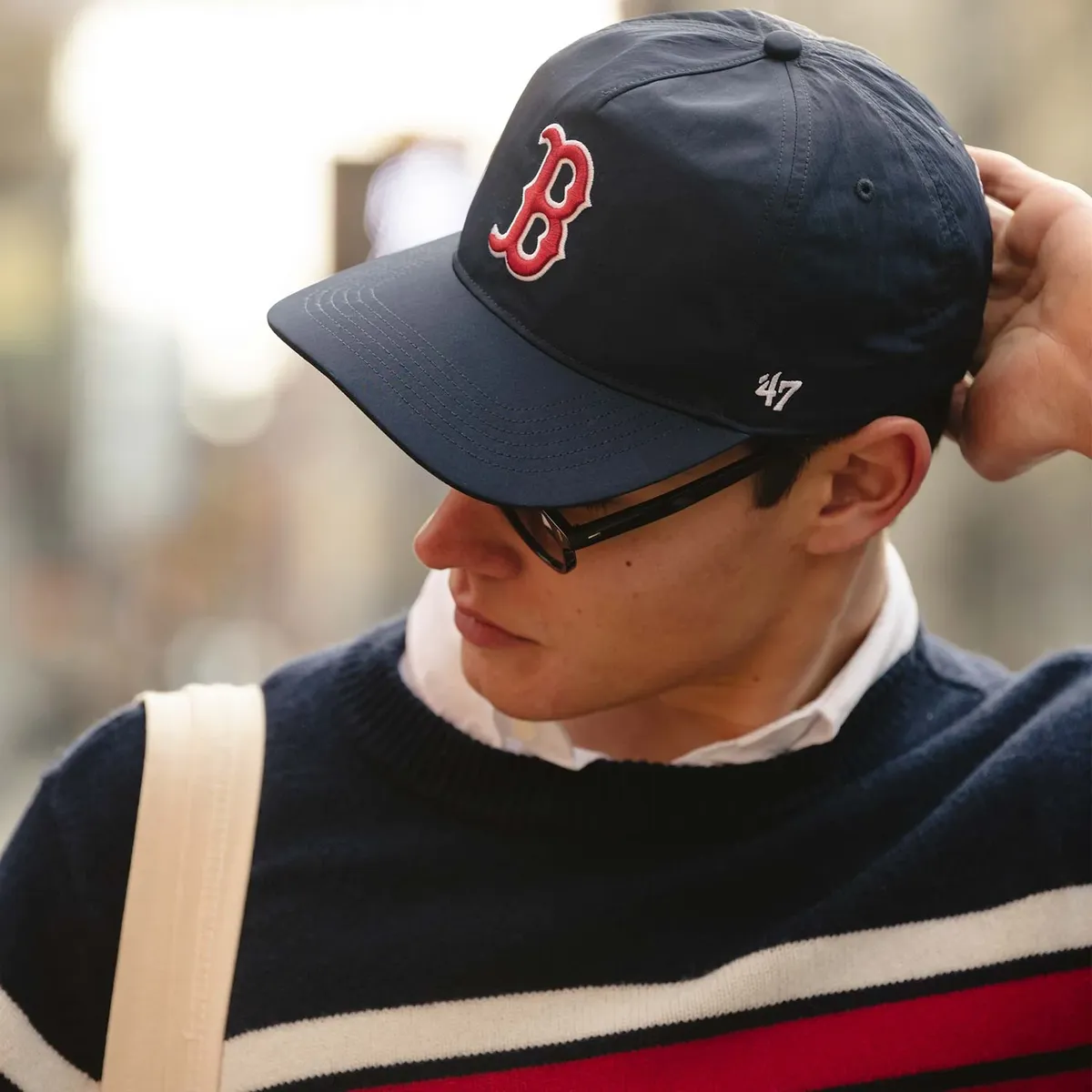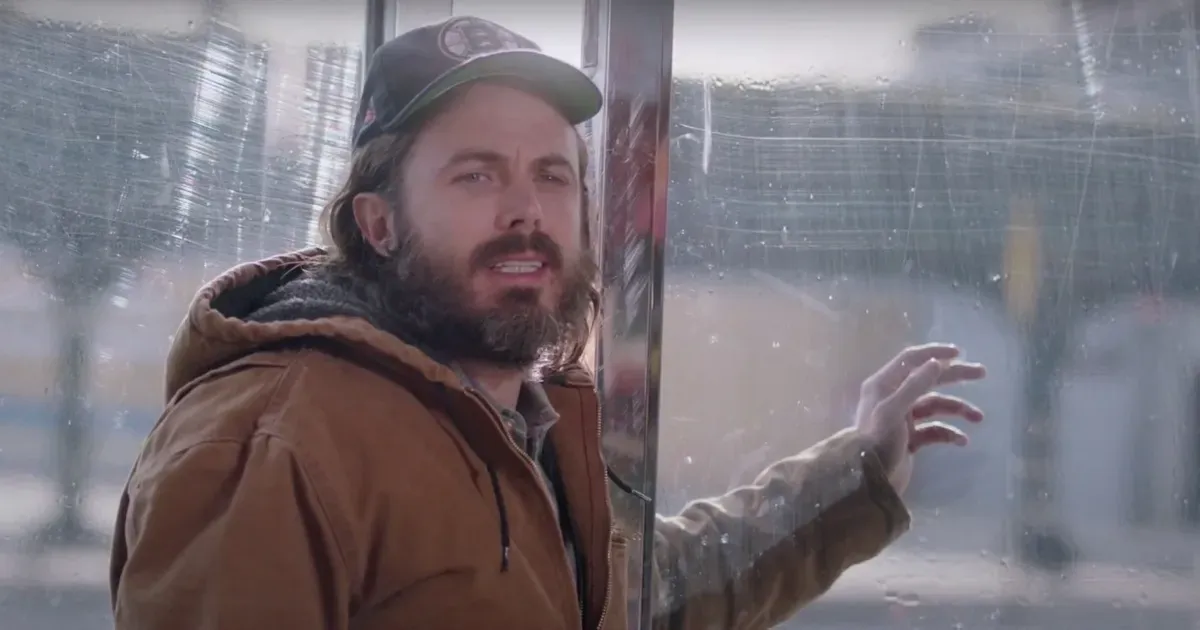Inside Baseball
When I first arrived in Paris, seeing the occasional Red Sox hat in the street was notable. I assumed, not unreasonably, that there must be some Red Sox fans in this city. I conjured the courage to ask someone wearing one, pointing awkwardly above his forehead — so, you're a fan too? He looked at me blankly for a beat before connecting the dots. Ah, non. Du tout. I may as well have approached a mustachioed bobo in Carhartt jacket, Wranglers, and Blundstones, asking if he was a carpenter, or maybe a mason.
 On the wane in America, but still popular in the 11ème.
On the wane in America, but still popular in the 11ème.
An old housemate who had lived in Berlin observed once, "in Paris, we all dress the same, so there's pressure to conform. But there (Berlin) you can't look like anyone else. And it's exhausting." Ideologically, uniforms are a tool of universalism; they reduce our differences and create a common language. But practically, they also simply spare us the overwhelming freedom of devising something original every day (or ever).1
Growing up, uniforms were fun, perhaps because I didn't have to wear one at school, where it would have become oppressive like everything else about school. Because uniforms were a deviation from the norm, they represented a reprieve from the meaningless daily grind of dressing. There are a few I remember obsessing about: my baseball getup, for little league games; the shirt, tie, suit, that were de rigeur at synagogue during the high holidays and bar mitzvahs; the austere bi-color T-shirts we were obliged to wear at the summer camp I attended.
The pleasure lay less in the rule-following, but rather in devising a way to solve the problem that felt true to oneself. There are prescriptions and confines, yes; but how will you work with them? If the overwhelming freedom of dressing each day absent almost any guidance is approximated by the terror of a blank page and a notion to write, the chance to apply one's instincts to the thoughtful execution of a uniform was the liberating restriction of a word count, a deadline, a rhyming structure.
I took pleasure in having baseball pants, which, though broadly conformed to one's generic expectation of baseball pants, upon closer examination revealed themselves to be, well, really damn good baseball pants. They had sturdy, double-stitched belt loops, and reinforced lining around the thighs for protection on those occasions when I'd surely be stealing home and making diving catches. That I mostly wore them on the bench, where I spent the better part of our games, merely seemed absurd, a tragedy disconnected from the fact that I put more of myself into dressing the part than working on my game.
 Big league pants.
Big league pants.
I remember my giddiness attending a bar mitzvah party for which I had cajoled my parents into buying me a black dress shirt. Nothing seemed more elegant, more discerning, than showing up to an evening function having swapped out the morning's blue Oxford cloth for this sleek, black beauty. I probably blended in seamlessly with the catering staff toting trays of kosher pigs in a blanket. And there's little doubt the shirt did nothing to change my default party mode: hanging around the periphery imagining how the landscape might shift just so, that I might finally make my entrance.
Fashion represented, to my childhood sensibility, a way to prove my mettle from the safety and security of controlled environments. Dressing up at home before a game or a party afforded privacy and predictability. Taking extra batting practice, fielding thousands of grounders – this might have revealed me to be a helplessly poor player. Simply approaching girls, starting conversations, dancing, were all clearly out of the question. But perhaps if I nailed the outfit, the glory would come to me. I picture the would-be writer now, sitting at a table outside Chez Prune, an allongé poised harmlessly by his elegant Moleskine, filled with pristine, undefiled pages. What does he imagine is going to happen?
There's a wonderful phrase I've given up translating: inside baseball. I feel such complicity, such belonging, when I hear it here.2 At a gig at a tiny club a few weeks ago, the Angeleno pianist's pedals went haywire, and as he tried to work out the problem in real time with the sound guy, his play-by-play came to double as geeky sound equipment banter for the waiting audience. "This is such inside baseball", he muttered. I had understood none of the debugging talk, but there I was at the back of the politely waiting crowd, grinning like an idiot in the dark.
Because how we dress, how we speak, which hat we don and which idiom we reach for, all of it's a flare fired off into the night, a desperate plea to be pulled out of the surf and onto the dry deck of a passing ship of like-minded travelers. Parisians, through their appropriation of the classic "B" motif, have rendered it impossible to express oneself as a Sox supporter via that simple gesture. Happily for us true fans, there are other, subtler ways to echo-locate one another.
 No Dunkies in Paris... yet.
No Dunkies in Paris... yet.
Whether they really "free up" one's attention to solve harder problems strikes me as another part of the performance. Are the great visionaries of tech/art/architecture who espouse this line really prepared to argue that choosing which shirt to wear from one day to the next would doom their revolutionary efforts? Perhaps the smallness of my own ambitions simply prevent me from understanding.↩
It doesn't hurt that its usage in foreign contexts manifests exactly the phenomenon it describes.↩